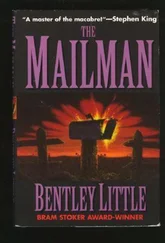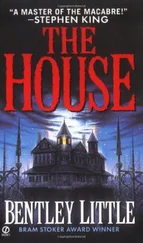"College is a great experience," Ginny continued gamely. "Not just a learning experience but . . . a social experience. It's where you get a chance to grow, to learn things about yourself, to find out who you really are and what you want from life."
"But there's no reason for me to go," Sam said. "I don't need to 'find myself,' and I already know what I want from life. I want to be on The Store's management team."
Silence again. Shannon shifted uncomfortably in her seat, would not meet anyone's eyes. She stared down at her plate, pushing her rice with a fork.
Ginny looked to Bill for help.
"The Store will always be here," he said. "And you can always come back to it. But this is your only chance to go to college. These are the only scholarships you'll get."
"I know."
"And once you get caught up in the rat race, you won't go back to school.
You might tell yourself that college will always be there and you can enroll later if you want to, but the truth is that that very seldom happens. If you don't go now, you won't go."
"I don't need to go."
"We didn't raise you to be a dummy."
"I'm not a dummy," Sam said defensively.
"Then prove it. Go to school."
"I don't need to."
"Everyone needs to."
Sam stood. "The fact is, Dad, college _will_ always be there. I _can_ go anytime I want. But this position won't stay open forever. If I don't take it, someone else may get it. And they may stay until they retire. This is a once-in a-lifetime chance. And if I don't like it or it doesn't work out" -- she shrugged. -- "I'll go to college."
"So you want to move out?"
Samantha nodded, barely able to hide her excitement or keep the smile off her face.
"Over my dead body," he said.
Her smile faltered. "Dad --"
"Yes," he said. "I'm your dad. And I'm telling you that you can't do this."
"I'm eighteen, and I can do what I want."
"Bill," Ginny warned.
He ignored her. "Once you move out, you can't move back. Even if they fire you." Ginny stood, threw down her napkin. "Bill!"
"What?"
"You are over the line!"
"It is a little harsh, Dad," Shannon said.
Sam was smiling again. She looked around the table, beamed at them. "It may take a little getting used to," she said. "But don't worry. It'll be great."
She looked like a fucking Moonie, he thought. Like some brainwashed bimbo who'd been captured by a cult.
He turned away from her, unable to look at his daughter and contain his rage. He had always considered himself a pacifist, had never really harbored or entertained any violent thoughts or desires -- not even in regard to his enemies -- but his feelings toward The Store and its minions were invariably revenge fantasies, tinged with violence. And never more so than now. He imagined beating the shit out of Mr. Lamb and Mr. Keyes, physically injuring them, and the aggressiveness of his thoughts disturbed him. He wasn't sure where these thoughts had come from, or why he was stooping to The Store's base level of discourse, but he wanted to hurt those sons of bitches.
Especially for what they'd done to his daughter.
His daughters?
He glanced toward Shannon. No, he thought thankfully.
At least not yet.
He did not help Sam move out of the house. Ginny did, Shannon did, Sam's friends did, but he remained in his office, in front of his computer, pretending to work, as they carried the furniture and boxes out of her bedroom. He knew how he was behaving -- and he hated himself for it -- but he could think of no other way of demonstrating to her the depth of his disapproval.
It was ironic, really. He had always felt nothing but disgust for those hard-hearted fathers who kicked their children out of the house for some minor transgression, who disowned their own children and refused to see them or talk to them. He'd always thought those fathers stupid and shortsighted. What disagreement could possibly be so serious that it was worth jeopardizing the relationship between a parent and a child?
Yet here he was, acting the same way, doing the same thing. Not wanting to, but not being able to avoid it. Ginny had been as angry as he was, and even more hurt, but she was better able to adjust, to roll with the flow, to accommodate change.
He could not do that.
He wished he could.
But he couldn't.
And he stood alone in his office, in the silence, listening to the fading motors of the pickup trucks as his oldest daughter moved out of his house.
3
The mood of the town seemed different, Ginny thought as she drove to the salon. Either something in Juniper had changed during their absence, or her perceptions had been altered by what they'd seen on the trip.
The Store.
It was the last thing they'd seen as they'd left town and the first thing they'd seen on their return.
And it had taken Sam.
If before she had felt that The Store was an intruder in her town, now she felt like the intruder. A transformation had occurred while they'd been on their trip, and now Juniper no longer seemed like her town. It seemed like The Store's town. And she was the unwelcome guest.
She drove down Main. The library, she'd heard, was being privatized.
County funds had been slashed at the last board of supervisors meeting, and since Juniper's library was the smallest and least frequented in the county, the decision had been made to close it. But once again -- of course -- the heroic Store had ridden to the rescue and offered to underwrite the entire operation a proposal that had been gratefully accepted.
The Store now controlled the police department, fire department, all town services, the school district, and the library.
And Sam.
Ginny gripped the steering wheel more tightly. She shared Bill's anger and frustration, but she still saw their daughter as a victim, not an accomplice, and though her gut reaction was to slap the girl and ground her for a month, she realized that Sam was at the age where she had to make her own mistakes.
And learn from them.
She had enough basic faith in her daughter to believe that that would occur.
And she did not want to alienate her and push her away at a time when Sam might need her mother the most.
For things were getting rough out there. She herself was avoided, ostracized, whispered about. Ignored by her friends. The recipient of cold stares from coworkers and giggling derision from old students.
This must be what it felt like to have been a Japanese-American during World War II, she thought, to have been a civil rights activist in Mississippi in the sixties. She was treated not merely as a stranger or an outsider, but as a traitor living among them, as an enemy.
Because she was not a Store sympathizer.
There were plenty of people who weren't, she knew. The displaced workers, the unemployed, all of the people who'd voted against the current council. But they'd been marginalized, shunted off to the side, and they didn't dare express their true feelings. It was as if, overnight, everything had changed, and all of their allies had either gone into hiding or disappeared.
The Store was now organizing Neighborhood Watch groups. Juniper's crime rate over the past two decades had been nearly nonexistent, but suddenly everyone was concerned about drugs and robberies, gang activity and sexual assaults. Now people in one part of town were reporting people from other parts of town who were seen innocently walking through their neighborhoods.
And the police were responding to the calls.
The town was becoming fractured, fragmented, the larger community breaking off into smaller, potentially adversarial groups.
And The Store was reaping the benefits.
Yesterday's issue of the newspaper had a full-page ad for a weekend sale of home security devices.
Читать дальше












